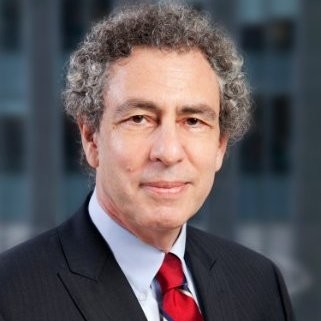This article is a part of the Amazon-Whole Foods After One Year Symposium symposium.
One year ago, Amazon acquired Whole Foods in a $13.7 billion deal. At the time, David Balto, a disciple of current antitrust orthodoxy, wrote:
Those who are saying the Amazon-Whole Foods merger is a competition problem are leading us into the jungle without a compass and no clear objective. Antitrust law should stick to protecting consumers and let the free market work.
The FTC quickly cleared “Project Athena” and issued a very short press release saying, “The FTC conducted an investigation of this proposed acquisition to determine whether it substantially lessened competition under Section 7 of the Clayton Act, or constituted an unfair method of competition under Section 5 of the FTC Act. Based on our investigation we have decided not to pursue this matter further.”
In fact, there was a lot to love for consumers from this merger over the last year: Amazon leveraged the Whole Foods stores to provide pick up and return centers for Amazon customers. Prices dropped. There are competitive alternatives. Those are, indeed, tangible consumer benefits.
That’s great, of course, and—at least in the short run—shows that the FTC reached the right conclusion in letting the merger go forward.
But, still, something feels different here. Uncomfortable even. Like when the sky is just too still before the storm hits. At least one of the authors of this article leans strongly libertarian and even feels worry.
But let’s pause from that feeling for a moment and return to antitrust law. The federal antitrust laws are an effective regulatory mechanism—enforced through both agencies and courts—when pure competition issues are involved. There is, of course, the periodic debate about what consumer welfare should mean, but for the most part antitrust law is effective in keeping the markets open for competition. And, of course, the US Supreme Court famously explained in National Society of Professional Engineers v. United States (1978) that “The heart of our national economy long as been faith in the value of competition.”
But when it comes to mega-mergers and the related aggregation of power by some of today’s big tech companies, are there limits to the effectiveness of current federal antitrust law to protect long-term consumer welfare?
Antitrust law, of course, focuses on specifically defined, often narrow, product and geographic markets. And mega-mergers and tech company power may not necessarily threaten to lessen competition in a single market—the Amazon-Whole Foods merger certainly didn’t.
But they do something much more pernicious: they aggregate data about us; they consolidate economic power across different markets; they acquire power through control of jobs, attention, and social and political communication; and they have the ability to harm local businesses (which, of course, was a larger concern of old-timey antitrust law, before the Chicago school made its appearance).
George Orwell’s 1984 never really materialized in terms of British government power (although Orwell may have believed that the British government had already acquired excess power by 1948). But today, Amazon, or Google, or Netflix, or Facebook, or Twitter are on aggregation cycles that give them the power (metaphorically, or possibly even literally) to listen in on our lives. For example, on August 23, 2018, there was a news report that read:
Representatives from a host of the biggest US tech companies, including Facebook and Twitter, have scheduled a private meeting for Friday to share their tactics in preparation for the 2018 midterm elections.
The same report indicated that nine of those same companies had already met in May 2018. Naturally, these companies claim they discuss only cybersecurity issues. But what do we do about these same social media companies that impose censorship on messages or information they don’t like. It’s great to say there are alternatives, but in fact, there aren’t. Because of the power of network effects, many people rely on these primary social media networks for their information, and that network has essentially replaced the old town square or the newspaper as a source of information for a discussion forum. The government would not dare to silence debate the way these private companies have done.
Size has economies of scale and efficiency, but it lacks the unconnected diversity of ideas, approaches, and testing that serve as the foundation for organic systems like a free-market economy. You replace a bottom-up system with a top-down system controlled by certain corporate powers, who use network effects to take over one aspect of our lives after another.
This is where it starts to get confusing because those that typically push for free markets are confronted with a situation where worshipping efficiency could ultimately create homogeneous behemoths that can destroy any would-be competitors like an annoying gnat on a late summer night.
In another article, one of us worried about similar problems from speech filters inherent in these large networks controlling so many aspects of our lives.
This is not healthy. It is not desirable. But it is probably not a violation of the antitrust laws.
Let’s return to the Amazon-Whole Foods merger. Yes, there are pro-competitive aspects to it.
Now let’s look at the other side.
As one element, Amazon-Whole Foods now allows Amazon to collect data about individual consumers’ food-buying habits. You might say that every grocery store with a loyalty card collects the same information. But Amazon already knows what books you read (and how often you read them), what movies you watch, and what brands of deodorant you buy. Depending on how accurate rumors are, Amazon may also enter the pharmaceutical market, and if it does, it will know what medicines you take and how sick you are. Do most Americans welcome this type of invasive knowledge? No one, including antitrust enforcers, seems to have asked them.
Amazon offers Prime discounts to Whole Food customers and offers free delivery for Prime members. Those are certainly consumer benefits. But with those comes a cost, which may or may not be significant. By bundling its products with collective discounts, Amazon makes it more attractive for shoppers to shift their buying practices from local stores to the internet giant. Will this eventually mean that local stores will become more inefficient, based on lower volume, and will eventually close? Do most Americans care about the potential loss of local supermarkets and specialty grocers? No one, including antitrust enforcers, seems to have asked them.
What about small business providers, including, specifically, small organic providers? Whole Foods was a launching pad for many local organic companies and these relationships with small organic providers were negotiated locally by in-store personnel. That appears to have changed with Amazon’s acquisition. It now appears from news reports that Amazon will become a “cost-efficient, national retainer.” That’s great from an antitrust-oriented “efficiency” perspective. We recall an article by William Kovacik and Carl Shapiro, “Antitrust Policy: A Century of Economic and Legal Thinking,” in Journal of Economic Perspectives, Vol. 14, No. 1 (2000), p. 43, at 51, that speaks disparagingly of Brown Shoe Co. v. United States, 370 U.S. 294 (1962), because “The Court also held that non-efficiency goals, such as preserving small firms, were relevant to applying the statute.”
On the other hand, do most Americans place some value on promoting local, community-based, organic food production or “small firms” in general? No one, including antitrust enforcers, seems to have asked them.
Does it matter to our health whether we eat whole unprocessed locally grown food or food that has entered a national distribution chain biased toward processing for the sake of surviving the chain? We are learning more and more that it does. But the antitrust enforcers don’t ask this question.
Perhaps the antitrust laws are inadequate to meet the social challenges of today’s mega-mergers and tech company aggregation?
People unquestionably like the convenience of Amazon and value the many positive benefits it brings them, including, we presume, the potential for discounted trips to the Moon for Prime members. But will they be as happy when Amazon turns into Big Brother and becomes one of the few oligarchical providers of every product they want, tying together masses of data and analytics about you personally that no American government has ever succeeded in collecting?
The real question is how long will we have to listen to the litany that “the antitrust laws are flexible enough to cover every situation.”
We doubt that anyone in this country thinks that it is healthy to end up with extended mega-mergers whose business activities are controlled by one set of reins (like the Copperweld team of horses), that cover multiple parts of our lives, that collect and use big data that profiles our personal and medical choices, that can flick local business into oblivion, and that can destroy diversity of ideas (social, political, and business).
Maybe the mantra, “Big is Bad,” is not right. But “Gargantuan is Bad” might be right. What can the antitrust laws do to prevent that? The answer is nothing, because each creeping aggregation may meet antitrust standards—while it subverts the organic ground-up competition and diversity of ideas that we treasure.
To sum up, yes, the Amazon-Whole Foods merger may have been totally innocuous from a strict “lessening of competition” analysis. But the potential for what it (and similar mega-mergers and big tech aggregation) produces is a variety of lurking menaces progressively advancing on our society.
There is only one law that protects Americans against bad mergers and that is the Clayton Act. But the Clayton Act doesn’t effectively focus on the threats we just discussed.
Are we too reliant on antitrust law to solve these problems or should we change antitrust to address them? Do we trust other parts of the government to anticipate these problems and fix them? We have our doubts and worries about that too.
There is an approaching threat. The storm isn’t here yet. The sky is still and people are going about their day, but if we don’t address these issues, the sky could grow slowly dark, the wind may pick up, and soon it will be too late.
One is reminded of Merle Haggard’s lyrics in “America First”:
Who’s on the Hill and
who’s watchin’ the valley?
An’ who’s in charge of it all?
Who is in charge of it all?





